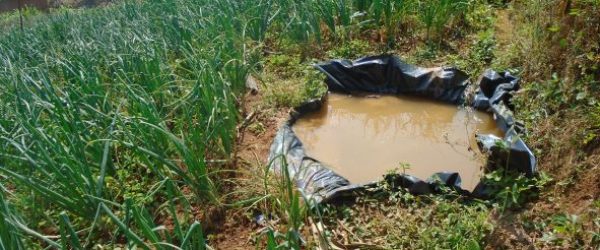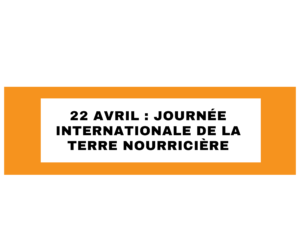Through the implementation of the project “ Adaptation to Climate Change for the management of water and soil resources ” (ACCES+) under the financing of German cooperation via the company GIZ, Inades-Formation Burundi has significantly supported the Field Schools of Producers (CEP) between 2015 and 2021 in two phases. The beneficiary rural population has implemented techniques and practices for the sustainable management of water and soil in order to access food security, prevent disasters and strengthen climate resilience.
The project contributed to improving the capacities of agricultural producers to carry out measures sensitive to climate change. The area of action affected by the interventions of the said project consisted of the following 13 hills : Murambi and Rubanda of Mutambu commune, Musenyi and Kinama of Nyabiraba commune, Mageyo and Muhororo of Mubimbi commune, Kwigere and Nyakibande of Isare commune in Bujumbura Province ; the Burangwa and Kagona hills of Bugarama commune in Rumonge Province and Nyambo, Kidasha and Bihangare of Marangara commune in Ngozi Province.
To support the initiatives of the producers involved, the project made available short-cycle seeds adapted to climatic variability distributed to producers who are members of the CEPs. Adequate seeds chosen in common agreement with the beneficiaries in relation to their resilience according to the area of action consisted in particular of yams, maize, climbing beans, soybeans, sweet potatoes with orange flesh, etc. Those preferred with a short cycle are in this case amaranths, cabbage, red and white onions, carrots, peppers, celery, etc. These crops were planted either in CEP demonstration fields or in their collective fields and in the kitchen gardens of CEP members.
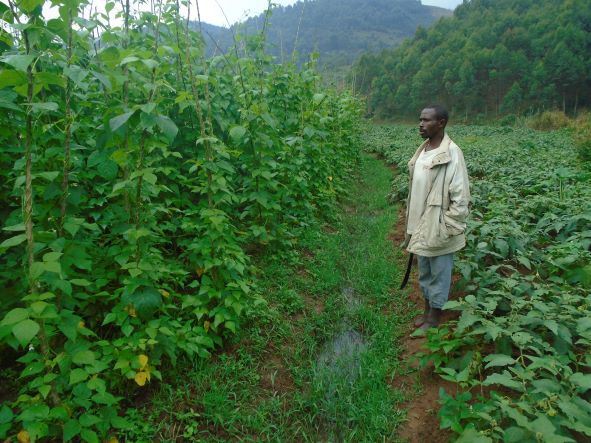
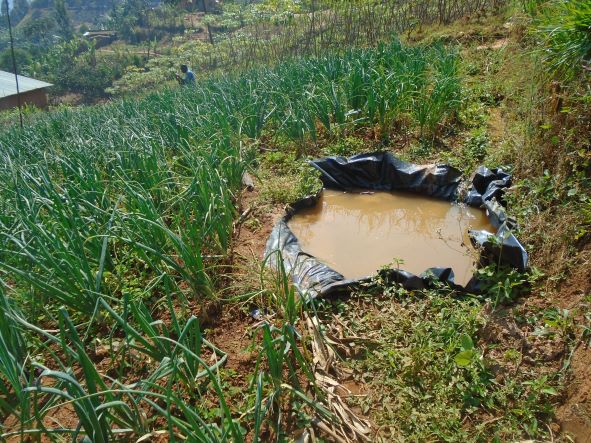
With one stone, the project facilitated observations of the plant/crop in its ecological system to inquire about its problems, seek to understand and learn about the causes of the problems and the interactions between the different elements of the system in order to make and execute appropriate decisions (Agro-EcoSystem Analysis : AAES). This approach has enabled FFS members to organize themselves to set up collective fields composed essentially of short cycle seeds.
Moreover, the project had trained CEP members on the different techniques for producing organic manure using pit composters, surface composters with or without activators, the use of yellow gold from AKASUGA (ecological toilets) and the use of biofertilizers (leaves of Tithonia, Calliandra, Leucaena). By using all these techniques, the members of the CEPs have considerably increased their production. Part of their harvest was consumed in households and the surplus was sold to meet other specific needs. Even though the project was about adapting to climate change, it enabled the development of other household self-promotion activities. During the last three years of the project period (2019-2021) the supported households were able to buy large livestock (cow), small livestock (sheep, piglets, goats), poultry and extended their their properties through the rental of land. They also formed small community savings and credit groups that enabled them to purchase 548 improved cookstoves.
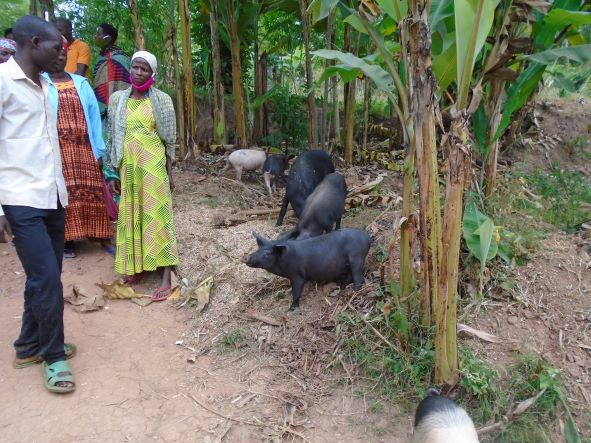
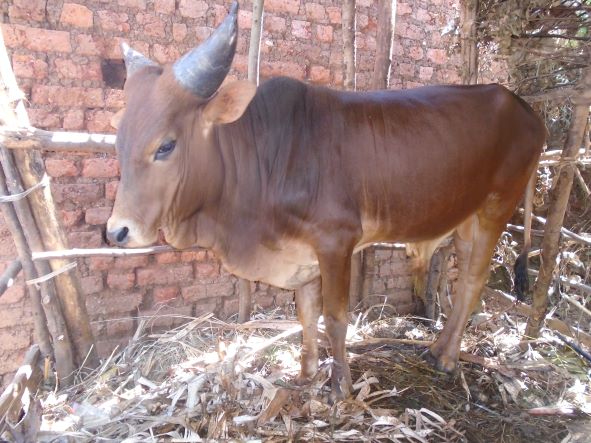
Inades-Formation Burundi is delighted with the results achieved and especially this ability to introduce community and varied resilience mechanisms.

